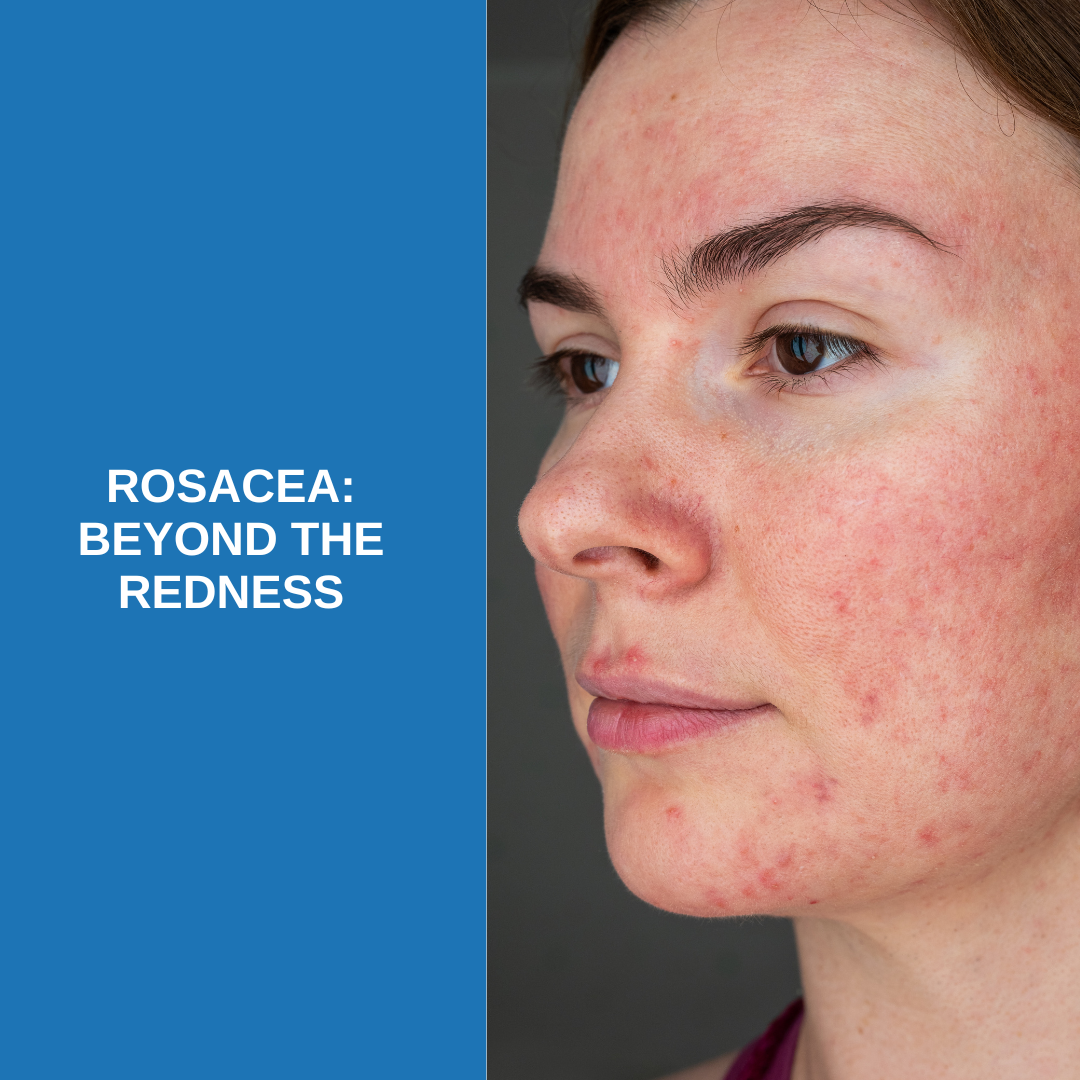Rosacea is often thought of as just facial redness—but anyone living with the condition knows it goes far deeper than that. Flushing, visible blood vessels, and sensitive skin are just the beginning. Rosacea can also affect self-esteem, cause embarrassment in social settings, and even be linked to other health conditions.
At Savannah River Dermatology, we want our patients to understand not only the skin symptoms of rosacea but also its emotional impact, common triggers, and the importance of medical care.
The Emotional Side of Rosacea
Facial flushing and redness can be distressing, especially when flare-ups seem unpredictable.
Many patients share that rosacea affects their:
- Confidence in social situations (avoiding photos, feeling self-conscious at gatherings)
- Professional interactions (worrying about looking “flustered” or unwell)
- Day-to-day stress levels (since stress itself can trigger flare-ups)
Acknowledging this emotional toll is important. Rosacea is not “just cosmetic.” It’s a medical condition with real effects on quality of life.
Common Triggers (and How to Spot Yours)
Rosacea triggers vary from person to person, but some of the most common include:
- Sun exposure
- Hot drinks or spicy foods
- Alcohol (especially red wine)
- Stress and strong emotions
- Temperature extremes (heat, cold, wind)
- Skincare products with alcohol or harsh ingredients
Keeping a trigger diary—noting what you ate, drank, or experienced before a flare-up can help you better manage your symptoms.
Myths About Rosacea
Myth: Rosacea is caused by poor hygiene.
Truth: Rosacea is not linked to cleanliness and cannot be “washed away.”
Myth: It’s just blushing.
Truth: While flushing is common, rosacea can also include persistent redness, visible vessels, acne-like bumps, and thickened skin.
Myth: It only affects fair skin.
Truth: Rosacea can occur in any skin type and tone—it just may look different.
Links to Other Health Conditions
Emerging research suggests rosacea may sometimes be linked to other health issues, including:
- Eye problems (ocular rosacea): Dryness, irritation, or swelling around the eyes.
- Migraines: Some patients report a higher frequency of headaches.
- Gastrointestinal conditions: Studies suggest possible associations with celiac disease, Crohn’s disease, or ulcerative colitis.
- Cardiovascular health: Some research shows a potential connection to high blood pressure or heart disease risk.
While these links don’t mean rosacea causes these conditions, they highlight the importance of seeking medical care and monitoring overall health.
Managing Rosacea With Support
The good news is that rosacea can be managed with the right combination of medical treatment, skincare adjustments, and lifestyle changes. Prescription creams, oral medications, and laser therapy are all effective options.
Most importantly, you don’t have to manage rosacea alone. Partnering with a dermatologist helps you find relief from both the physical and emotional burdens of this condition. We’re here to help! At Savannah River Dermatology, we’re here to help you manage rosacea with compassion and expertise. If you’re struggling with flare-ups or want personalized treatment options, schedule a consultation today.
The information presented in this blog is for informational purposes only and should not be taken as medical advice. If you have questions or concerns, please call our office or make an appointment with a medical professional. Savannah River Dermatology is located at 575 Furys Ferry Rd in Augusta, Ga. Our office can be reached at 706-691-7079. Photos used in title slide are taken from the American Academy of Dermatology.








